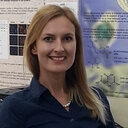PTP1B phosphatase as a novel target of oleuropein activity in MCF-7 breast cancer model.
Atslēgvārdi
Abstrakts
Phosphatase PTP1B has become a therapeutic target for the treatment of type 2-diabetes, whereas recent studies have revealed that PTP1B plays a pivotal role in pathophysiology and development of breast cancer. Oleuropein is a natural, phenolic compound with anticancer activity. The aim of this study was to address the question whether PTP1B constitutes a target for oleuropein in breast cancer MCF-7 cells. The cellular MCF-7 breast cancer model was used in the study. The experiments were performed using cellular viability tests, Elisa assays, immunoprecipitation, flow cytometry analyses and computer modelling. Herein, we evidenced that the reduced activity of phosphatase PTP1B after treatment with oleuropein is strictly correlated with decreased MCF-7 cellular viability and cell cycle arrest. These results provide new insight into further research on oleuropein and possible role of the compound in adjuvant treatment of breast cancer.




